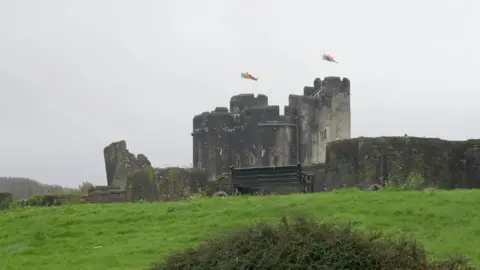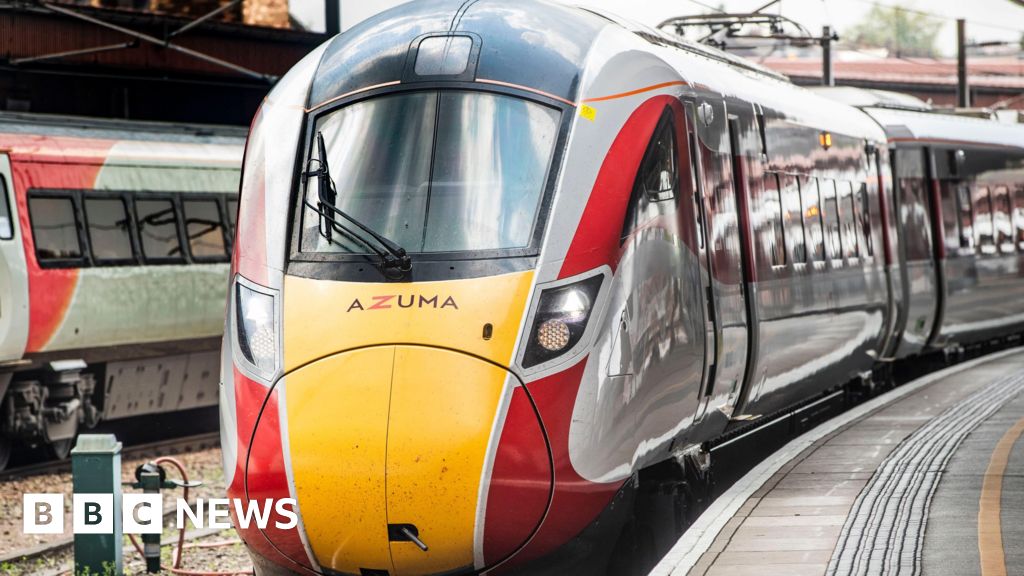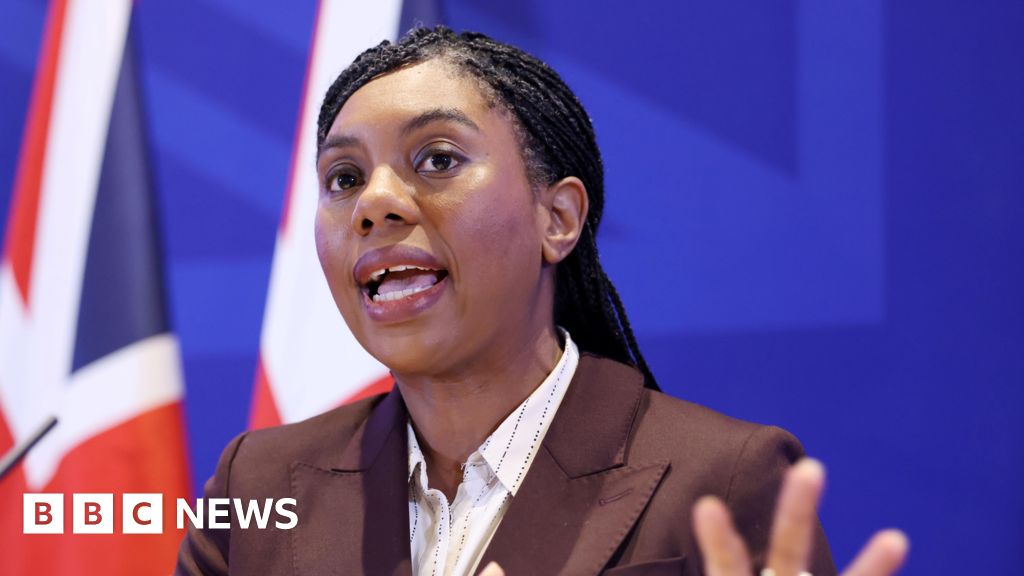Chris MasonPolitical editor, Caerphilly

 BBC
BBC
The history of the Labour Party oozes out of the valleys of south Wales, perhaps like nowhere else in the UK.
Keir Hardie, that founding figure of the party, was elected to Parliament in Merthyr Tydfil in 1900.
Aneurin Bevan, the founder of the NHS, was elected as the MP for Ebbw Vale in 1929.
Even in recent years, when the so called Red Wall of formerly solid Labour seats in many parts of the north of England and the Midlands crumbled, with the Conservatives as the beneficiary, much of south Wales stuck with Labour.
The Red Wall and plenty more besides have since swung to Labour, but now things seem to be changing in Wales.
Local sentiment, polling and the mood within the parties all suggests something is up, ahead of a by-election to the Welsh Parliament in Caerphilly.
Labour gloom
Talking to folk around town, there is a deep-seated frustration.
A stubborn lack of evidence, as many see it, of things getting better.
And there is a recurring sense of a declining sense of community: a sense that the ties that have long bound the town, the area together, are perhaps continuing to fray.
Something which began with the closure of the coal mines and loss of much heavy industry has continued, some feel, as so many of us retreat behind a phone screen; our increasingly digital lives splintering and atomising us further from each other.
Is that a contributor to political volatility and a dilution of the loyalty people may once have had to particular political parties?
Whatever the contributory factors, Labour are gloomy here, even on their upbeat days.
In Caerphilly, they are the essence of the political establishment: they run the council, they run the Welsh devolved government and they run the UK government as well.
This, if you are the Welsh Labour candidate, can cause issues.
Richard Tunnicliffe, a book publisher by trade, has campaigned in recent weeks to keep some local libraries threatened with closure open.
The thing is, it is the local Labour council which runs the very libraries threatened with being shut. Awkward.
It is a case study in the potential consequences for a party of near political ubiquity for such a long time.
Perhaps little wonder Reform UK and Plaid Cymru are upbeat.
Giants squeezed
Anecdotally, and for what it is worth, they both appear to have considerably more posters dotted around the place than Labour.
And they definitely have broader smiles and a greater spring in their steps.
The big change round here is Reform UK.
As has so often happened in the last six months or so, they are compelling their rivals to react to what they are doing.
The party leader Nigel Farage has been here twice, drawing big crowds.
But the security guard on their campaign office front door reminds you they provoke strong opinions, positive and negative.
Some are incensed with their focus on immigration, in an area with barely any.
Reform's candidate Llŷr Powell argues they are offering something new and are untainted by the blame being heaped on both Labour and the Conservatives.
But they do come with their own Welsh branded baggage.
The party's former leader in Wales, Nathan Gill, has admitted taking bribes to make statements in favour of Russia, of all countries, while he was a member of the European Parliament.
He is expected to be jailed next month.
Powell tells me Gill deserves to face the full force of the law.


Lindsay Whittle, the Plaid candidate, is no stranger to elections.
He has stood in ten general elections and every devolved election for over a quarter of a century – and victory has remained elusive.
He has been a local councillor for nearly 50 years.
Whittle reckons that when it comes to what appears to be a cratering in support for Labour, he has never seen anything like it.
He is buoyant and thinks that in a tight tussle with Reform UK, he can squeak a win.
Plaid are allowing themselves to dream, with some supportive polling evidence right now at least, that they could be running the Welsh government after next May's devolved elections across Wales. They see Reform as their big opponent.
But some of Labour's opponents fret that they may be under pricing what they fear could be a new phenomenon – what one figure described to me as "shy Labour voters."
Some people might be unwilling to admit it, or saying they are undecided, but could they plump for Labour in the end? Let's see.
The Welsh Conservatives, in a part of the world rarely fertile for them, find themselves cropped further out of the picture, again courtesy of Reform.
Perhaps little wonder when former Conservative cabinet minister Sir Jacob Rees Mogg is suggesting Tory voters in Caerphilly should consider voting Reform to prevent Plaid from winning.
Incidentally, he also suggests Labour supporters should back Reform too, for the same reason.
Both of Westminster's giants – Conservatives and Labour – are feeling squeezed here.
The Liberal Democrats, the Green Party and others are vying for support too.
You can see a full list of the candidates standing in the by election here.
As I say, next May, there will be elections across Wales to the Welsh Parliament, the Senedd.
By Friday morning here, we could be seeing the first big indicator of a seismic change to come.
.png)
 1 month ago
10
1 month ago
10








 English (US) ·
English (US) ·